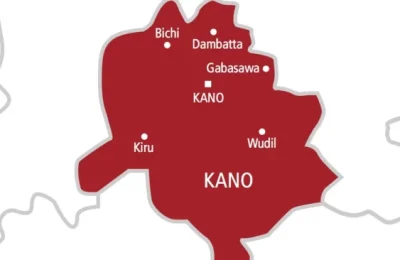
IN the first month of the running year, the Bola Tinubu administration returned the searchlight on private universities in Nigeria, through a probe of 107 of the operating 149, coordinated by the Ministry of Education. Since then, the private operators have remained on the firing line of many critiques, both informed and outlandish, further putting pressure on the owners to either bubble with transformational performance or simply burst.
Of those currently in operation and mostly under probe microscope, faith-based, dominate, which some critics see as an issue, though globally, religious bodies, have for centuries led the drive to educate man, with foundation in God, despite diverse doctrines.

Following the Harvard anti-semitism crisis, Princeton now tops Ivy league ranking and its history showed it began as a Christian school.
In early 1746, four Presbyterian ministers, Jonathan Dickinson, Aaron Burr Sr, John Pierson and Ebenezer Pemberton Jr, the original founders, also known as the New Lights, hatched the idea basically, “to educate young men for the ministry”. It started as College of New Jersey.
Even Harvard, most known to the diaspora as the biggest global brand in tertiary education, had its begining in faithism. While not formally affiliated with any denomination, Harvard trained congregational clergy until its curriculum and student recruitment were secularised in the 18th century. Englishman John Harvard, the first benefactor of the institution at infancy, was also a puritan clergyman. His £780 and 320-volume library-donation on his deathbed, made all the difference for the barely two-year-old institution. The impact of his giving was so much that in 1639, a year after his death, the institution took on his identity and still running with it, 384 years after.
Even the oldest surviving university, University of Bologna, founded by Italian jurist, Imerius in 1088, was purely Catholic in conception and the oldest college in the world, Collegio di Spagna, which the University houses, was founded by a Cardinal, Girl Alvarez De Albornoz in 1364.
So if world oldest and best were ecclesiastical in foundation and weaned on faith, religious bodies, both Christian and Islamic, running private varsities, are treading the right path of history and could also be of excellent output like Princeton, Harvard et al, if they would do the needful as the years roll by.
Igbinedion University in Edo State is Nigeria’s first private varsity, birthed in 1999 by billionaire businessman, Sir. Gabriel Igbinedion. Considering how long Nigerians had begun accessing western education, both home and abroad and the value placed on its acquisition especially by Southerners, it is perplexing none came before IUO. Nigeria, being substantially governed by the military, repulsed for its manifest aversion for the freedom that education gives, before civil rule returned, possibly accounted for the late start by the private sector, but it is gratifying that the catch-up is catching up. While Igbinedion didn’t start as faith-based, there is no doubting the faith of the chief promoter and its impact on the 25-year-old institution. Building a 4,000-seat Baptist Church where the University is located says a lot.
One can also say same of the Adeleke University in Ede. While it is widely perceived as a family varsity, there is a very strong Seventh Day Adventist flavour in its operation, just like Babcock in Ilishan-Remo, Ogun State, where vegetarian diet is adopted in line with the doctrine of the denomination and students are expected to flow with what the institution markets as “professional delivery of healthy vegetarian (lacto-ovo) food and services”.
Of course, both Covenant University in Ota, owned by the Living Faith Church and Redeemer’s University in Ede, owned by RCCG, carry all the spiritual ensembles of their chief promoters; David Oyedepo and Adejare Adeboye. There are also Mountain Top University owned by Mountain of Fire and Miracles Ministries and Precious Cornerstone in Ibadan owned by Bishop Wale Oke.
Elementary understanding points to these institutions and others like them, having strong DNAs reflective of those who dreamt them into existence and despite the attacks, official and unofficial, directed at both Islamic and Christian organizations pushing the frontiers of private varsities in Nigeria, the impacts of their participation cannot be denied.
In March, the National Universities Commission (NUC) claimed that private varsities are being undersubscribed.
“There are over two million students in Nigerian university and only 10 percent of the two million are in private universities. The 149 private universities are undersubscribed”, the Commission’s acting Executive Secretary, Chris Maiyaki said. While Maiyaki should know given his vantage position, his data of private varsities collectively housing a little above 200,000 students, may not be altogether correct, even as his overall two million call for varsity studentship, may also not be true. His tally was possibly founded on data supplied by JAMB. Maiyaki should know better.
Yet his claim of the private varsities being undersubscribed is a fact rooted in empirical evidence as some of them, scavenge for students with unsolicited admission offers during admission cycles. This desperation goes to suggest that quality may be sacrificed in filling admission spaces in such institutions. Truth be told, JAMB itself has over-lowered the bar with the 140 cut-off mark for varsities, out of a possible 400. Is qualitative scholarship being promoted with such a ridiculous national average in an exam that will qualify for the only degree most of those participating, will carry for the rest of their lives? If the average national performance was poor as claimed, the bar should also not be lowered to the poor-level. Instead, the 2024 exam should have been used as a signal to future candidates that only the best would access university education going forward. Any cut-off below 200 is a disservice to the future of tertiary education in the country and JAMB would be lacking in moral force to preach quality above quantity to private varsities if it sticks to the ridiculous pegging. After all, the peddling varsities are admitting candidates with the poor performance but cleared by JAMB.
I understand the educationally disadvantaged thing and I say cut-off doesn’t have to be uniform and national. South can have theirs. North can have theirs. This will help in motivating those who want to put everything into it. And nothing would be novel about the dichotomy. Ordinarily, in a genuine federalism, JAMB and NUC would only be servicing federal institutions. Federal allocations have never been same for everyone. Local government creation has never been same, ditto for state creation. Admission into Unity schools has never been uniform. So, why the national cut-off when varsities are still at liberty to accept or reject candidates above the cut-off? Without realizing it, JAMB may be promoting the same mediocrity it is accusing private varsities of, with the yearly ridiculous cutoff. The Board should first remove the log in its eyes before the speck in others.
But that won’t absolve private varsities of the many downsides to their operations, starting with the fees. Ironically, instead of the slamming public to see the bulging fees as a signal that parents won’t be spending so much if quality isn’t assured or the children themselves being very outstanding in their academics, many prefer to see it as merely buying certificates for spoilt rich kids who can’t compete in public varsities, because they are either lazy or dull.
This sweeping uncharitable call is however spared rich kids who studied abroad. In Massachusetts Institute of Technology where a lot of rich Nigerians including leaders of the NURTW now send their children, the average annual payable for tuition and other costs was $57,986 in 2021/2022 session! Need I remind that MIT is a private varsity. I understand that climes are different and the elite-induced economic hardship here is enough reason for public anger towards anything that suggests ostentatious, considering the reasoning that only those stealing public fund one way or the other, can afford fees charged by some private varsities, which explained the hoopla that greeted the birth of the dollar-charging Wigwe University, the only one, considered to be of Ivy league status here.
But I see the very obvious poor public engagement as the biggest challenge facing public varsities in Nigeria. They carry on as if they don’t owe the wider populace fruitful and sustained engagement, playing straight into the narrative of being exclusively for the rich.
Some of them only appear in public arena when scandals are rocking their campuses, just to deny and straight back into their shell, which makes them to appear as for-profit-only. There is also this constant accusation of private varsities being whimsically run like glorified secondary schools by the owners, especially the religious organisations. Interestingly even Harvard has a dress code. Funny?, yes, but true. There are “Do Wear” and “Don’t Wear”. That is a university community we assume everything goes, including walking afternoon sun in birth suit. Do you also know that cooking appliances like toaster ovens, air fryers, hot plates, rice cookers, tea kettles, coffee makers are also not allowed. Harvard has a checklist when you are coming in.
Just like the best of Nigeria’s federally-run universities, with the oldest being UI which is just 76 years, can’t be compared to a 384-year-old Harvard, it would be disingenuous expecting Igbinedion University or Covenant to be like UI or UNILAG in just two decades of existence. NUC, JAMB and Ministry of Education can’t also be using same yardstick in dealing with government-funded and private varsities. A lot of concessions would be needed for growth, without allowing them to derail. Private varsities would have to be treated like a child who is eager to walk but still staggering. You can’t keep whipping him while trying to stand from a fall, because of comparison with the sturdy, bolting adults. Even adults do fall.
Private varsities too must clean up their acts. They can’t remain in cocoon in an info-tech age. The baying public will have them for dinner, further diminishing their worth and appeal. Those originating from a particular faith but deciding to open the system up like Harvard, must learn diversity, inclusiveness and equity, to avoid social media roforofo. If a policy isn’t working, no doctrinal dogma should keep it. Today’s students are the ambassadors of tomorrow. If bitter pills are served because they are powerless against an oppressive system today, they will speak their bitter truth tomorrow when they no longer have to obey campus orders.
It would appear that private varsities in Nigeria with Christian roots get more of the public biting, considering the constant argument that numerous children of the congregants can’t attend such institutions because they are priced beyond their parents whose tithes and offerings allegedly built the schools. I don’t know what to make of this claim because I’m not in any ways involved, but such Christian varsities can offer scholarships beyond full-time ministers and missionaries, even when God is asking them to increase the fees!.
READ ALSO: Nigeria condemns terrorist attack in Mali








